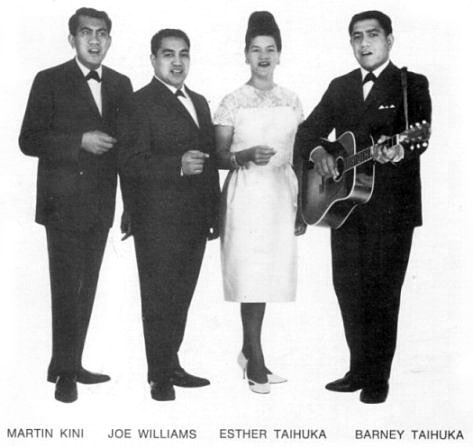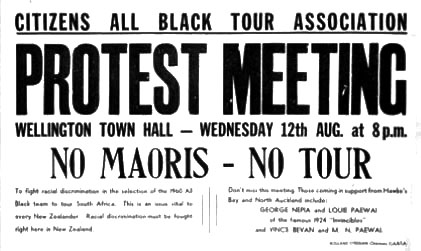In the 1960s, American blacks, and to a lesser extent, New Zealand Maori, were facing white racism as they moved from farms to cities, from agriculture to industry. This song was a quiet reminder of their status.
| (spoken) G It has been written in the book for men that D all men are equal under the G sun D G 1. There is no war and D so no pain All are as one, under the G sun When stripped of all ma-D-terial gain All men are equal, equal under the G sun D7 C Chorus In the land of the free in G our own country Where our D babies are taught as G one Where they C learn to be men, lift up their G faces and then Walk hand in D hand, into the G sun D G 2. And God he smiles on D these two little isles Nestled in peace and plenty under the G sun His rays shine down on D each little town Where all are one, under the G sun D7 C Chorus It has been written in the Book for men To D follow God's com-G-mand To D follow God's com-G-mand. |
Moving to the citiesIn the 1960s, New Zealand was one of the most prosperous countries in the world, and workers in cities could make good money. But for Maori in rural areas, their small farmlets could not support rapidly growing families. So large numbers of young Maori moved to the cities looking for work, money and adventure. For the first time, many Maori came into close contact with Pakeha, and intermarriage increased significantly during the 1960s.
There was also official discrimination: New Zealand Rugby Union officials refused to include Maori players in the 1960 All Black tour of South Africa, resulting in one of the biggest public protests this country has seen. Two years later, the United Nations General Assembly passed a resolution condemning the white South African regime's apartheid policies and called for all UN member states to cease military and economic relations with it. In the southern USA, black Americans were struggling to overcome similar discrimination. A continuing campaign for civil rights by the black community caused violent reactions from whites in Mississippi, Virginia and Alabama, where the black civil rights leader Martin Luther King was arrested. When the Ku Klux Klan dynamited a church in Birmingham, Alabama, killing 4 young black girls, there was wide public outrage, and Martin Luther King delivered his "I have a dream" speech. In the USA, folk songs were evolving into strident protest music thanks to young artists like Bob Dylan (Blowing in the Wind) and Joan Baez (We Shall Overcome). In New Zealand, the protest songs were quieter, and reached their target white audience with humour, as in the Howard Morrison Quartet's presentation of My Old Man's an All Black, or with smooth pop harmonies, as in the The Kini Quartet's version of Under the Sun. (I have a cover version by Danny McGirr on this webpage) |
The Kini Quartet
The Kini Quartet were a Gisborne Maori pop vocal group who began recording Margaret Raggett's songs in 1962. After they had success with their recording of "Under The Sun", they relocated to Auckland. They recorded eight singles between 1962 and 1969, with "Under The Sun" in 1963 being their most popular. It was also the title of their only LP released in 1964. They also srecorded these songs by Margaret Raggett. 1962; Jenny and Johnny, Storm Girl, 45 |
Margarette (Tiny) RaggettGisborne C & W musician. Born 1931, married her teen sweetheart Bill Raggett, lived in Cheesman Road and died in 1999. Hopefully, her family and the Gisborne Country Music Club members can send me more information about her. As well as "Under the Sun," and other Kini Quartet songs, she penned two of Peter Posa's big hits, "Grasshopper" and "Hitch Hiker." |
